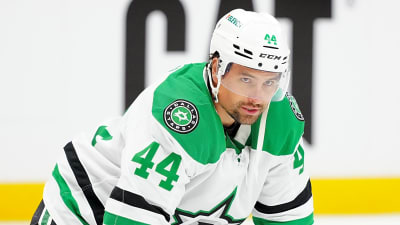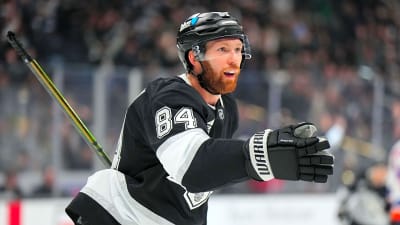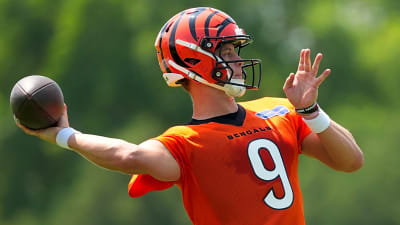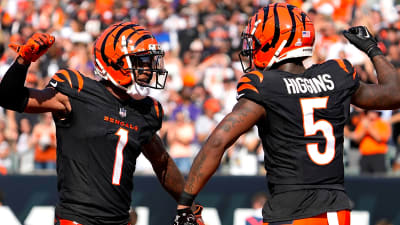
After some doubt regarding the future of Jaren Jackson Jr. with the Memphis Grizzlies following the trade that sent Desmond Bane away to the Orlando Magic, the Grizzlies have quickly made it clear that they are not about to blow up the team anytime soon. On the first day of free agency, it was reported that the Grizzlies had come to terms on a contract renegotiation and extension with the former Defensive Player of the Year, inking him to a five-year contract worth around $240 million.
Coupled with their signing of Ty Jerome off free agency and the new extension for versatile forward Santi Aldama, the Grizzlies are poised for another playoff push, even in a loaded Western Conference. They bolstered their depth, and following the Bane trade, they have the draft capital to keep building around Ja Morant and Jackson for the foreseeable future — with Morant under contract until the 2027-28 season and Jackson committing his future until 2030.
Did the Grizzlies overpay to keep one of their franchise cornerstones? Or is this simply the price of doing business in today’s NBA? Here is a rundown of how Memphis did in their agreed-upon contract extension with the 25-year-old forward.
Grizzlies had to keep Jaren Jackson Jr., even at this huge price point

A $240 million deal spread out over five years amounts to around $48 million per season — huge money, even in today’s NBA. This is the kind of money that true superstars and game-changers make, and for the Grizzlies, they are deeming Jackson to be that kind of player.
For what it’s worth, Jackson has improved leaps and bounds and is either yet to enter his prime or he’s smack-dab in the middle of it. This past season, he averaged 22.2 points per game even with the Grizzlies getting most of its players back after an injury-ravaged 2023-24 campaign and he did so while improving his efficiency, with his true shooting of 59.1 percent being excellent considering the volume of shots and the shot diet he had all year long.
Moreover, he nearly matched his career-high in points per game (22.5) despite playing nearly three fewer minutes per contest than he did last season. And at 25, there’s no reason to expect any sort of drop-off from him on this side of the ball for the foreseeable future.
Jackson earns most of his money, however, on the defensive end. The Grizzlies allowed nearly four fewer points per 100 possessions whenever Jackson was on the court last season (per PBP Stats), and it’s his mobility on the perimeter that sets him apart from most other rim-protecting big men.
Only 26 players at present are making over $48 million per season, so Jackson is in select company after signing his new contract. And it’s hard to argue that Jackson isn’t worth that kind of financial commitment. This is the going rate for star players these days, and Jackson is a two-way force whose skillset makes him one of the more attractive big men to build around in today’s NBA.
Of course, there are a few glaring deficiencies in Jackson’s game that he needs to address if he were to blossom into the best version of himself he could be. For starters, he has to cut down on his fouling problem. Part of the reason why his impact can run so hot and cold is that he typically finds himself in foul trouble — forcing difficult rotation decisions on the fly for the Grizzlies. He led the league in personal fouls committed this past season, and that is not quite the statistical category any NBA player wants to lead.
It’s not like Jackson is accruing those fouls in an undeserved manner. He sometimes gets in his own way, committing cheap fouls on ill-advised reach-ins without much consideration for the game state they’re in. He has to find a way to rein in his worst instincts so he can be on the floor as much as possible for a Grizzlies team that thrives whenever he’s on the court.
The other problem Jackson has, at this point, is not looking fixable. His rebounding leaves so much to be desired; among qualified players, he ranked 62nd this past season in rebounds per game (5.6). For reference, newly-signed New Orleans Pelicans center Kevon Looney, despite averaging just 15 minutes across 76 games last season, grabbed more total rebounds than the Grizzlies big man did.
There’s no coincidence that the Grizzlies were at their best in the 2020s when they had Steven Adams line up alongside Jackson in the frontcourt. Memphis will have to find a way to compensate for Jackson’s major weakness moving forward.
Nonetheless, the most important thing is that the Grizzlies will now have Jackson to build around for the next five seasons at least. The contract may look stunningly expensive at first glance, but Memphis had to keep Jackson if only to protect the asset, which they did at the usual price players of his caliber go for these days.
Grade: B+
More must-reads:
- Kevin Durant headlining record NBA trade
- Report: Suns could make surprising move with Bradley Beal
- The 'Leading scorer by NBA franchise' quiz
Breaking News
Trending News
Customize Your Newsletter
 +
+
Get the latest news and rumors, customized to your favorite sports and teams. Emailed daily. Always free!








